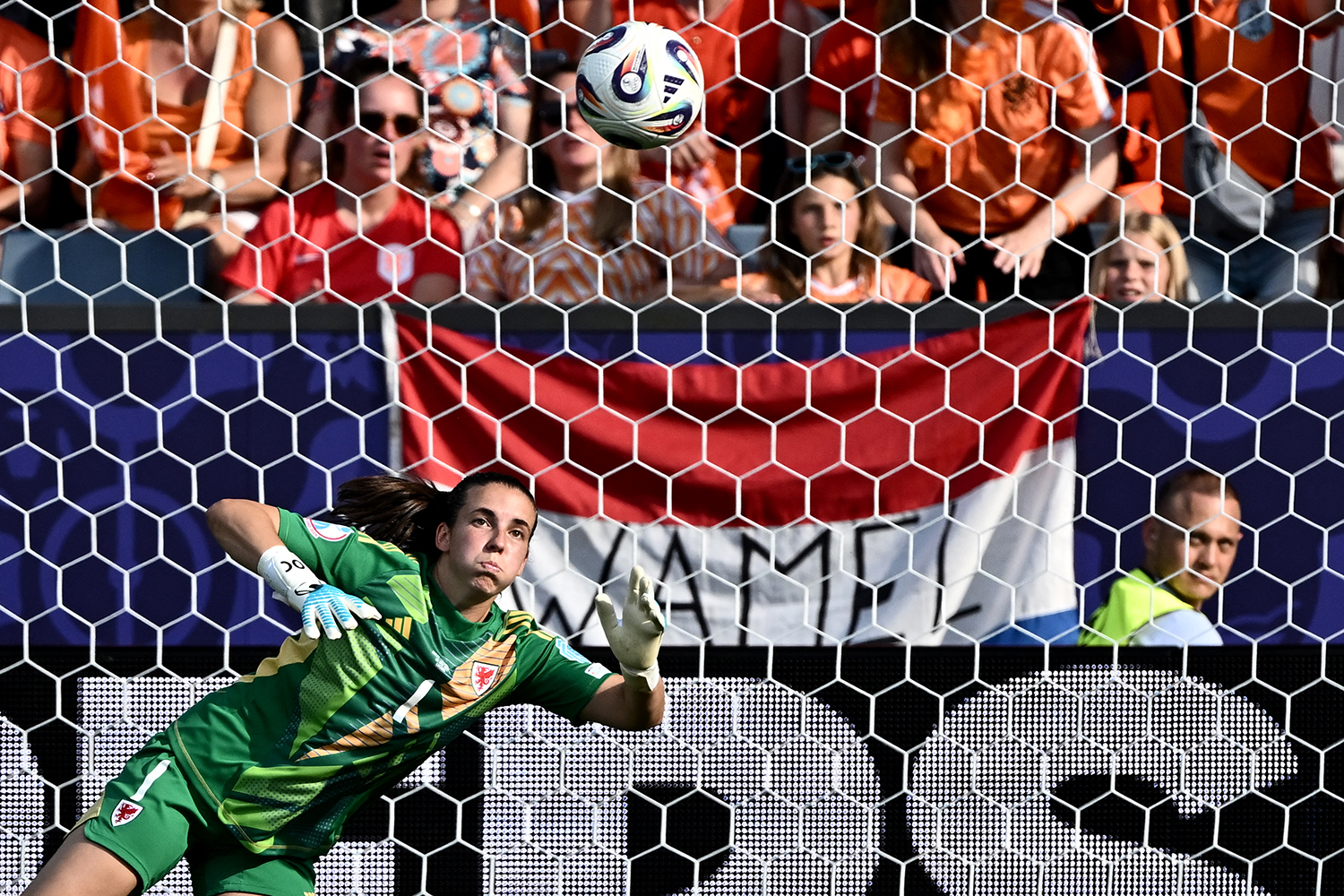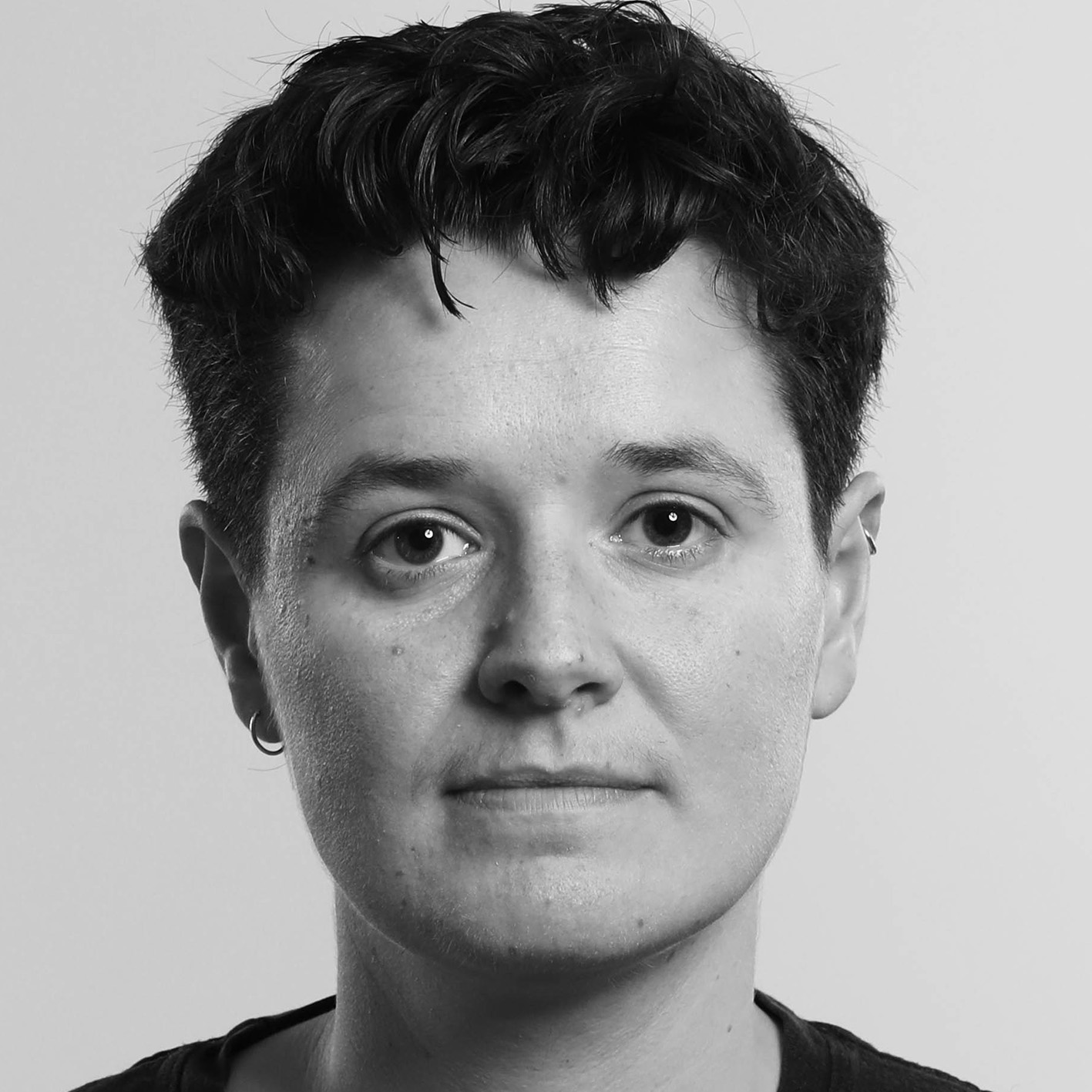As the closing bars of “Hen Wlad Fy Nhadau” were belted out in Luzern, Angharad James-Turner failed to suppress a grin. The Wales captain was hearing their national anthem played for the first time at a major international women’s tournament. At 31 years old and 133 caps in, it was a moment that James-Turner and many of the Wales team had believed might never come.
“We’ve worked so hard over the years and to give that moment to these players is truly special,” she said, speaking ahead of their first match against the Netherlands.
“To see the Welsh flag and Wales on the biggest stage of all is something that I didn’t know if I’d be able to experience personally. To be here today is an honour.”
The match against the Netherlands was a chastening experience in the end. Despite a robust start where the Dutch had plenty of possession but could not find a way through, the Netherlands ended up scoring at the most inopportune times.
Vivianne Miedema was given far too much time to twist, turn and curl in her 100th goal for her country, minutes before half-time. Any hope of using the break to rally was quickly extinguished when Victoria Pelova scored within minutes of play restarting. When Esmee Brugts got the third, it looked like it could become an embarrassing evening for Wales, but they dug in to ensure no further damage was inflicted.
Wales have always been sanguine about what actually playing at this tournament might look like. They are the lowest ranked team in Switzerland and along with Poland, the only debutants. Drawn in a “Group of Death” with England, France and the Netherlands, it was always going to be an uphill struggle.
“Qualifying was the biggest challenge,” said manager Rhian Wilkinson at her squad announcement. “That’s not to diminish the importance of the tournament but these women have gotten close so many times before, and there’s a baggage that comes with that. Getting the team past that point was critical. Now these younger players that have just come into the team will never know anything but this team qualifies for major tournaments.”
Those close calls have included missing out on qualification opportunities as a result of second-placed rankings, away goals and last-minute winners. Their most-capped player, Jess Fishlock, admitted in an interview with ITV that she had lost part of her “soul” during the journey to an international tournament.
“Relief was my overriding emotion,” she said when talking about when they finally qualified, after beating the Republic of Ireland.
“It was the only missing piece in my career. Getting on to the big stage with Wales, let’s just say I can sleep at night now.”
Newsletters
Choose the newsletters you want to receive
View more
For information about how The Observer protects your data, read our Privacy Policy
Given their journey to the tournament it is not surprising that the attitude from both the squad and fans has been one of enthusiasm.
Buoyed from recent experiences with the men’s team that saw them reach the semi-finals in France at Euro 2016, before making Euro 2020 and the 2022 World Cup, 3,800 travelled over as part of the “Red Wall” to see the tournament debut. That outstripped the 3,000 fans that came from the Netherlands, despite being far better established having won the European Championship under Sarina Wiegman in 2017.
For Wilkinson, the focus has been on preparing her team for everything that a tournament entails. The Canadian participated in five World Cups and four Olympic Games as a player, and invited her former teammate Diane Matheson, who was capped 206 times by Canada, to address the Wales squad ahead of their first game.
“We try and create a safe space for the team because they are experiencing a lot of emotion,” said Wilkinson. “We talk quite openly about the nerves, the excitement, the busy brain. You have to acknowledge that it’s there and then we discuss it and make sure as a team that we have the tools to prepare for it.”
Even before their first match loss to the Netherlands, Wilkinson was unfazed by what impact the result might have.
“I’ve won Olympic medals after losing the first game,” she said. “What we really want to focus on is making sure we find our feet in the game and build into the tournament.”
It’s an admirable sentiment but Wales’ problem is it only gets tougher from here.
Photograph by Fabrice Coffrini/AFP

